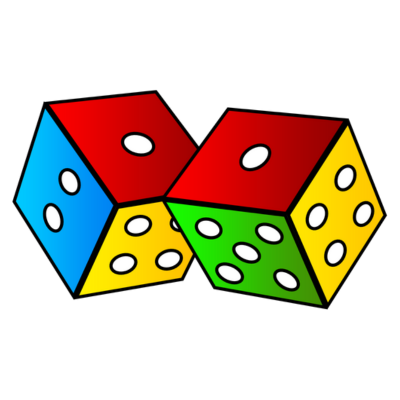Introduction
Blockchain technology is reshaping the gaming industry by introducing decentralization, transparency, and enhanced security. Ludo games, traditionally known for their casual and competitive gameplay, are now integrating blockchain to offer tamper-proof transactions, NFT-based assets, and secure real-money gaming.
This blog explores how blockchain is transforming Ludo games, ensuring secure transactions, fair gameplay, and decentralized gaming ecosystems.

The Need for Blockchain in Ludo Games
Ludo games have evolved from traditional board games to mobile and online platforms, but they still face several challenges:
- Trust Issues: Players often question the fairness of dice rolls and game outcomes.
- Fraudulent Transactions: In-app purchases and real-money gaming require a secure, tamper-proof payment system.
- Lack of True Ownership: Players spend money on in-game assets but cannot transfer or trade them outside the game.
Blockchain solves these challenges by enabling decentralized transactions, fair gameplay, and asset ownership.
Ensuring Transparency & Fair Play with Blockchain
Decentralized Random Number Generation (RNG) for Fair Gameplay
One major concern in digital Ludo games is the integrity of dice rolls. Traditional systems use centralized RNG (Random Number Generators), which developers or hackers can manipulate.
Blockchain-based RNG ensures:
- Tamper-proof game results with publicly verifiable randomness.
- Immutable records stored on the blockchain, preventing alterations.
- Smart contract execution for automated, transparent dice rolls.
Example: A blockchain-based Ludo game stores each dice roll on a distributed ledger, allowing players to verify the randomness of every outcome.
Secure & Decentralized In-Game Transactions
Blockchain-Based Payment Solutions
Many Ludo games monetize through in-app purchases, entry-fee tournaments, and virtual currency. However, traditional payment gateways charge high transaction fees and pose security risks.
Blockchain payments enable:
- Cryptocurrency transactions for faster, borderless payments.
- Lower transaction fees compared to traditional banking methods.
- Instant payouts & withdrawals, improving user experience.
Example: A blockchain-powered Ludo platform lets players deposit and withdraw crypto tokens securely, eliminating third-party risks.
NFTs & Digital Asset Ownership in Ludo Games

NFT-Based Game Assets & Customizations
Players spend money on custom dice, skins, and game boards, but traditional gaming models restrict ownership.
NFTs (Non-Fungible Tokens) empower players by:
- Offering unique, tradable in-game assets that players own permanently.
- Enabling peer-to-peer asset trading in decentralized marketplaces.
- Allowing players to use the same NFTs across different Ludo platforms.
Example: A player purchases an NFT-based exclusive dice skin and later sells it to another player for cryptocurrency, earning real-world value.
Play-to-Earn (P2E) Model in Blockchain Ludo Games
Monetizing Gameplay Through Blockchain Rewards
The Play-to-Earn (P2E) model allows players to earn cryptocurrency rewards by participating in Ludo games.
P2E models work by:
- Offering crypto tokens as rewards for completing challenges or winning tournaments.
- Providing staking opportunities, where players can lock tokens to earn passive income.
- Allowing users to trade in-game currency for real-world assets.
Example: Players earn blockchain-based tokens for every match won, which can be converted into cryptocurrency or real money.
Enhanced Security & Fraud Prevention
Blockchain’s Role in Preventing Cheating & Hacks
Fraud and hacking are common issues in online Ludo games. Blockchain’s decentralized nature ensures that no single entity can alter game results or manipulate transactions.
Key security benefits include:
- Immutable game records that prevent result tampering.
- Smart contract enforcement to automate payouts fairly.
- Decentralized identity management to secure player accounts.
Example: If a player tries to alter game results, the blockchain ledger rejects the modification, ensuring fair play for all users.
Blockchain-Based Tournaments & eSports Integration
Hosting Transparent, High-Stakes Ludo Tournaments
Competitive gaming is growing, and blockchain-powered Ludo tournaments ensure:
- Fair prize distribution using smart contracts.
- Decentralized leaderboards to prevent ranking manipulation.
- Global participation with secure crypto-based prize pools.
Example: A decentralized Ludo eSports platform uses blockchain to guarantee fair prize distribution and eliminate fraud.
Future of Blockchain in Ludo Games

Cross-Platform Integration & Interoperability
Future blockchain-powered Ludo games will allow:
- Players to use the same assets across different gaming platforms.
- Interoperable NFT-based avatars, dice, and boards in multiple games.
- Multi-chain gaming ecosystems, supporting Ethereum, Binance Smart Chain, and Polygon networks.
AI & Blockchain Fusion for Smart Gaming
- AI-powered predictive analytics for fair matchmaking.
- Blockchain-based anti-cheating algorithms for fraud detection.
Develop a High-Quality Ludo Game Today!

Conclusion
Blockchain technology is revolutionizing Ludo games by ensuring fair play, secure transactions, and decentralized asset ownership. With NFT-based customization, Play-to-Earn models, and smart contract-powered tournaments, blockchain enhances both player experience and monetization opportunities.
A game development company specializing in blockchain integration can help create innovative Ludo games with advanced security, seamless transactions, and unique in-game assets, ensuring a next-level gaming experience.
As blockchain adoption grows, Ludo games will transition into more transparent, player-centric, and financially rewarding ecosystems, making gaming more immersive and profitable for players and developers alike.



